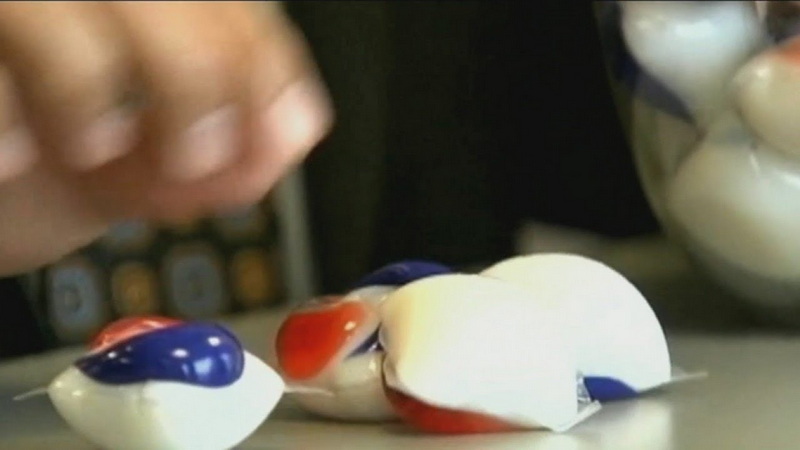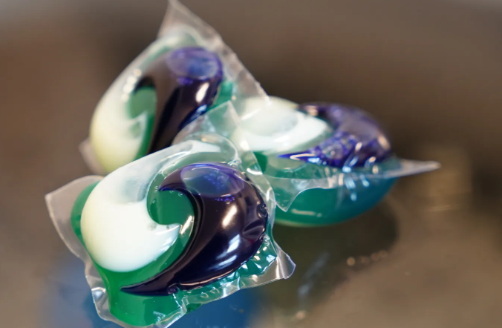Dongguan UFine Daily Chemical Co.,Ltd.
- All
- Product Name
- Product Keyword
- Product Model
- Product Summary
- Product Description
- Multi Field Search
Views: 222 Author: Tomorrow Publish Time: 10-24-2025 Origin: Site











Content Menu
● Ingredients in Dishwasher Pods That May Cause Clogging
● Why Some Dishwasher Pods Clog Drains More Than Others
● Common Brands and Types Known for Drain Clogging
● How to Identify If Your Dishwasher Pod Is Causing Drain Clogs
● Preventing Dishwasher Pod-Related Drain Clogs
>> Avoid Overloading the Dishwasher
● Alternatives to Dishwasher Pods That May Reduce Clogging
● What to Do If Your Drain Is Already Clogged
● Environmental and Health Considerations
● FAQ
>> 1. What ingredients in dishwasher pods most often cause drain clogs?
>> 2. How can I tell if my dishwasher pod is clogging the drain?
>> 3. Are generic dishwasher pods more likely to clog drains?
>> 4. Can changing dishwasher settings help prevent clogging?
>> 5. Is it better to use dishwasher powders or liquids instead of pods to avoid clogs?
Dishwasher pods have become a popular choice for their convenience and measured detergent doses. However, some consumers encounter issues with clogged drains after using certain dishwasher pods. Understanding why specific pods cause clogs, the ingredients involved, and how to prevent damage can help maintain your dishwasher's performance. This article explores the types of dishwasher pods that are prone to clogging drains, factors contributing to this problem, and practical solutions to avoid drain blockage.

Dishwasher pods are compact, single-dose packets containing detergent and other cleaning agents. These pods dissolve during the dishwasher cycle, releasing their contents to clean dishes effectively. Unlike powders or liquids, pods simplify the cleaning process by eliminating the need to measure detergent. The pods typically contain a combination of cleaning agents, enzymes, fragrances, and sometimes rinse aids to enhance dish cleanliness and shine.
Some components in dishwasher pods can contribute to clogged drains:
Phosphates help cut grease and food residues but can sometimes solidify or combine with minerals in water, creating blockages. Although many manufacturers have reduced or eliminated phosphates due to environmental concerns, older or cheaper pods may still contain them, increasing clog risks.
Surfactants break down oils but can form sticky residues when mixed with soap scum and hard water minerals. This residue can cling to pipes and drain systems, eventually restricting water flow.
These substances maintain the pod's shape and enhance shelf life but might not fully dissolve during the cycle, leading to sludge accumulation. Fillers can include compounds like sodium sulfate, which in high concentrations can contribute to sediment build-up inside the dishwasher's drainage system.
Enzymes help digest protein, starches, and fats but if imbalanced or inactive due to poor storage or low-quality formulation, may leave behind undigested material that settles in drains. Additionally, if food residues are too tough or large, enzymes alone may not fully break them down.
Not all dishwasher pods are equal. Pods that clog drains usually share these traits:
- Poor solubility leading to residue left in the machine.
- Excessive use of fillers or binders that don't dissolve well.
- High phosphate concentration causing solid buildup.
- Incompatibility with hard water types, increasing mineral deposits.
- Use in short wash cycles that do not give enough time for pods to fully dissolve.
Manufacturers that cut corners on ingredient quality or pod design may create products that leave behind partial residues, especially in older dishwasher models or units with less powerful water circulation.
While many brands produce effective and safe pods, some reports and user reviews point to certain types more frequently linked to drain issues:
- Economy or generic pods often sacrifice quality, leading to more residue. These products may rely more heavily on fillers and less effective enzymes.
- Highly concentrated pods sometimes don't dissolve completely in quick cycles, leaving undissolved detergent that accumulates.
- Pods with lower enzyme activity may fail to break down food particles thoroughly, exacerbating buildup.
- Some scented or gel-coated pods may leave sticky residues that adhere to pipes.
It is important to note that brand performance can vary depending on specific dishwasher models and local water quality, so users should monitor results personally.
Identifying the culprit pod involves monitoring for symptoms:
- Slow draining or water pooling in the dishwasher tub.
- Foul odors indicating trapped food particles.
- Visible residue buildup or gunk inside the dishwasher or drain pipes.
- Frequent need for professional drain cleaning.
- Dishes coming out less clean despite using fresh pods, signaling inefficient cleaning.
If these issues coincide with switching to a new pod brand or type, it is likely the pods contribute to the problem.

To reduce the risk of drain blockages caused by dishwasher pods, consider the following:
Opt for reputable brands known for fast dissolving formulas and balanced ingredients. Look for pods with enzyme blends designed for various food residues and avoid cheap products heavy in fillers.
Longer wash cycles allow pods to dissolve fully, minimizing residue. Avoid quick wash options if the pods struggle to dissolve properly in your dishwasher.
Crowded dishes hinder pod dissolution and water flow. Proper loading ensures effective water circulation, allowing pods to release detergent fully.
Remove large food particles before placing dishes in the dishwasher to reduce debris entering the drain. Although many pods claim to clean tough residues, excessive food scraps can overwhelm enzymes and clog drains.
Clean the dishwasher filter and drain regularly to prevent buildup. Running a cleaning cycle with dishwasher cleaner or white vinegar monthly can reduce residue and maintain drain health.
Hard water exacerbates residue buildup because minerals react with certain pod ingredients. Installing a water softener or choosing pods formulated for hard water can reduce clogs.
For those prone to clogging problems, other detergent formats may help:
- Dishwasher powders dissolve easily and can be adjusted in quantity. They often contain fewer binders and fillers.
- Liquids rinse off quickly and seldom accumulate. They also allow precise dosing to avoid excess detergents.
- Tablets may dissolve slower than pods but often break apart well with water, reducing leftover residue.
Switching format may reveal which detergents work best with your dishwasher and water type.
If your dishwasher drain clogs:
- Use manual removal methods such as cleaning the drain filter and traps.
- Run specialized dishwasher-safe drain cleaners that dissolve sludge.
- Check and clean the drain hose for kinks or blockages.
- Consult a plumber if problems persist despite cleaning.
- Avoid running the dishwasher until the clog is resolved to prevent overflow or damage.
Proactive care helps limit the risk of costly repairs and extends dishwasher life.
Choosing pods with biodegradable ingredients and no harmful phosphates can also benefit the environment and reduce sanitation issues. Look for products labeled phosphate-free, eco-friendly, or approved by environmental agencies.
Using excessive detergent or harsh chemicals in an attempt to clean can harm pipes, water systems, and health. Selecting well-formulated pods contributes to safer dishwasher operation.
Dishwasher pods offer convenience but may clog drains if they contain poor-quality ingredients, do not dissolve fully, or are incompatible with your dishwasher or water type. Selecting high-quality pods, adjusting dishwasher use habits, and regular maintenance can prevent clogs and extend the life of your dishwasher. If a clog occurs, prompt cleaning and care are essential to restore performance and avoid costly repairs. Monitoring your dishwasher's performance and adapting detergent choice based on observed results ensures cleaner dishes and a trouble-free drain system.

Phosphates, fillers, and binders in some dishwasher pods can build up and cause drain blockages, especially when they don't fully dissolve during the wash cycle.
Signs include slow draining water, bad odors from the dishwasher, visible residue inside the appliance, and repeated clogs requiring maintenance.
Generic or economy pods often use lower-quality ingredients that may dissolve poorly, increasing the risk of residue buildup and drain clogging.
Yes, using longer wash cycles ensures pods dissolve completely, reducing residue that contributes to clogs.
Powders and liquids typically dissolve more thoroughly and can be adjusted in dosage, which may reduce the chance of clogs compared to some pods.